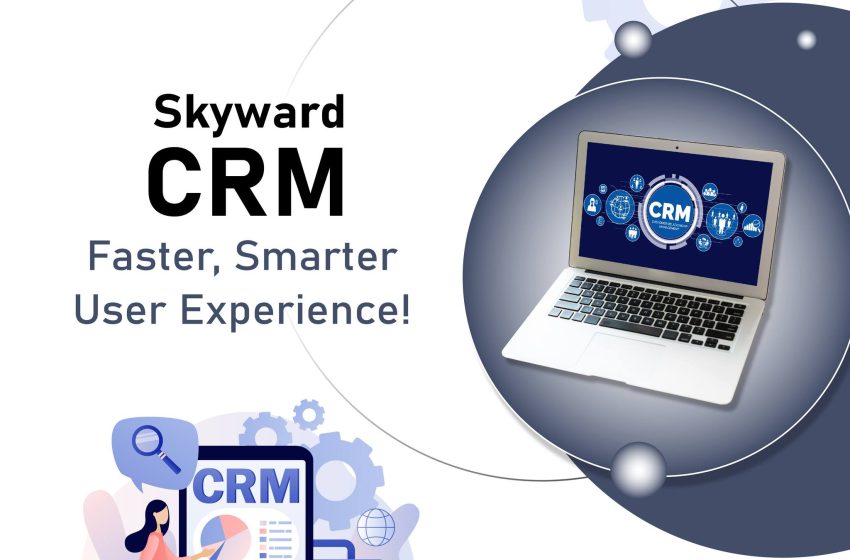Best CRM Software for Remote Teams: Features to Look For

In today’s fast-paced business environment, remote work has become a norm rather than an exception. As companies adapt to this shift, effective collaboration and communication have never been more crucial. One of the most powerful tools that can facilitate this is a Customer Relationship Management (CRM) system. Selecting the best CRM software for remote teams can significantly enhance productivity, streamline operations, and improve customer relationships. In this blog, we’ll explore essential features to look for when choosing CRM software, especially for small businesses operating with remote teams.
Understanding the Need for CRM Software for Remote Teams
Remote teams often face unique challenges, including time zone differences, lack of face-to-face interactions, and communication barriers. Implementing a robust CRM system can help mitigate these challenges by centralizing customer information, automating processes, and fostering collaboration among team members. As a result, remote teams can maintain high levels of efficiency and service quality.
Key Features to Look For
1. User-Friendly Interface
One of the first things to consider when selecting CRM software for small business is its user interface. A user-friendly interface ensures that team members can quickly navigate the system without extensive training. This is particularly important for remote teams that may have varying levels of technical expertise. Look for a CRM that offers intuitive design and customizable dashboards, allowing users to access the information they need efficiently.
2. Cloud-Based Accessibility
Since remote teams work from various locations, it’s essential to choose a cloud-based CRM system. Cloud-based solutions provide access to data and functionalities from any device with an internet connection. This feature ensures that team members can collaborate in real-time, regardless of their physical location. As businesses continue to embrace remote work, cloud accessibility will become increasingly vital.
3. Collaboration Tools
Effective communication is key to the success of remote teams. The best CRM software should include built-in collaboration tools that allow team members to communicate easily, share documents, and manage projects. Features like shared calendars, task assignments, and internal messaging can enhance teamwork and keep everyone on the same page, even when working from different locations.
4. Mobile Compatibility
Remote teams often work on-the-go, so having mobile compatibility is crucial. A CRM system that offers mobile applications enables team members to access customer data, update information, and communicate with colleagues from their smartphones or tablets. This feature ensures that your team remains productive, whether they’re at home, in the office, or traveling.
5. Customizable Workflows
Different teams have different processes. The best CRM software should allow for customizable workflows to accommodate the unique needs of your remote team. Look for software that lets you automate repetitive tasks, set up custom fields, and create tailored reports. This flexibility ensures that your CRM aligns with your business processes, improving efficiency and productivity.
6. Integration Capabilities
Remote teams often use various tools to manage different aspects of their work. The best CRM software should integrate seamlessly with other applications, such as email, project management tools, and marketing automation software. This integration ensures that your team can maintain a streamlined workflow, reducing the need for manual data entry and minimizing errors.
7. Robust Reporting and Analytics
Data-driven decision-making is essential for remote teams to understand their performance and optimize their strategies. A good CRM system should provide robust reporting and analytics features that allow teams to track customer interactions, monitor sales performance, and analyze marketing campaigns. These insights enable remote teams to make informed decisions and identify opportunities for improvement.
8. Automation Features
Automation can save time and reduce manual effort for remote teams. Look for a CRM that offers automation features, such as lead assignment, follow-up reminders, and email marketing campaigns. By automating routine tasks, your team can focus on more strategic activities, ultimately leading to better customer service and increased sales.
9. Customer Support and Training
When implementing a new CRM system, having access to quality customer support is essential. Ensure that the software provider offers reliable customer support, including live chat, phone support, and extensive documentation. Additionally, consider whether they provide training resources to help your remote team get up to speed with the system. Proper training can significantly reduce the learning curve and enhance user adoption.
10. Scalability
As your business grows, so do your CRM needs. The best CRM software should be scalable to accommodate your changing requirements. This means it should easily handle an increasing number of users, more complex workflows, and additional features as your business evolves. Choosing a scalable CRM solution will save you the hassle of switching systems as your business grows.
Conclusion
In an increasingly remote work environment, having the right tools is crucial for success. A robust CRM system can provide remote teams with the necessary tools to enhance collaboration, streamline processes, and improve customer relationships. When selecting CRM software for small business, prioritize features that support remote work, such as cloud-based accessibility, collaboration tools, mobile compatibility, and automation.
Investing in the best CRM software tailored for remote teams will not only enhance your operational efficiency but also drive growth and customer satisfaction. By considering these key features, you can choose a CRM solution that meets the unique needs of your remote team, ensuring you stay competitive in today’s business landscape.

